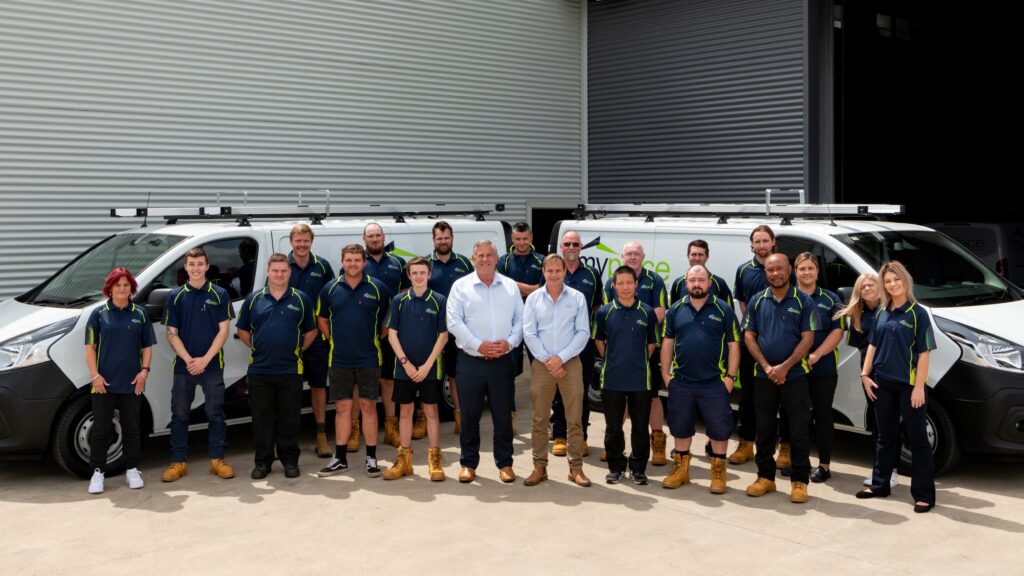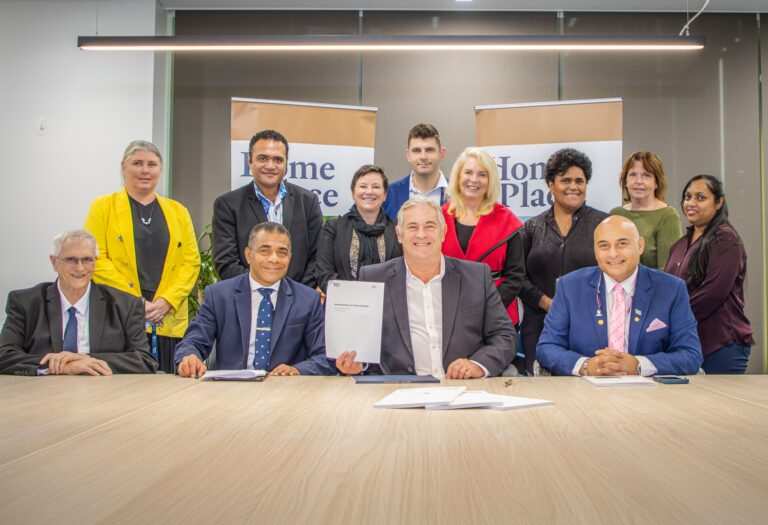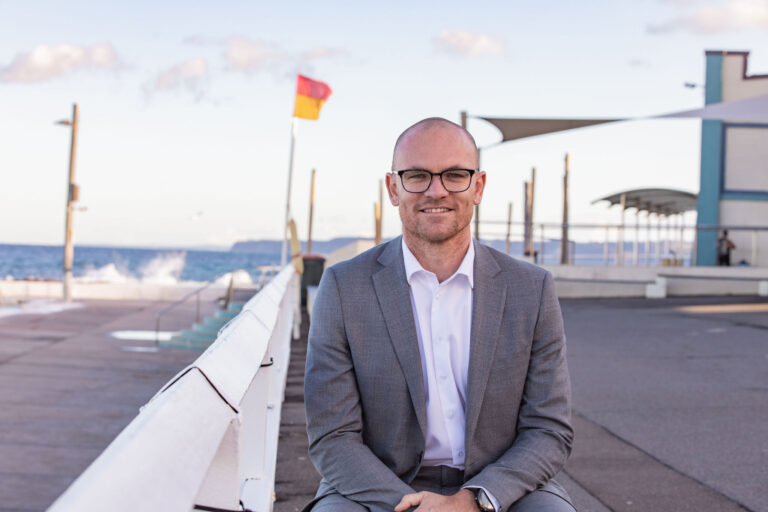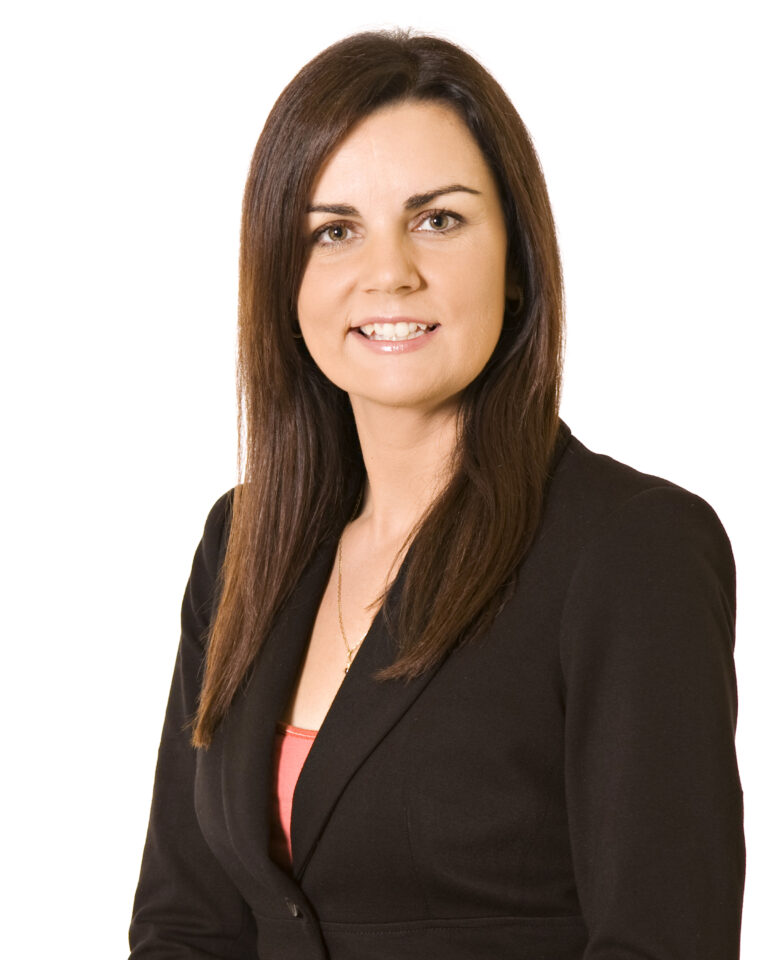Hunter-based community housing provider, Compass Housing, finished 2020 in a strong position, despite what Group Managing Director, Greg Budworth describes as the most challenging year in Compass’ history.
Greg’s comments come, following the release of Compass’ latest annual report.
The report shows that Compass’ housing portfolio continues to grow. It added another 248 properties and increased the number of tenancies it manages by 7.5 percent.
The growth was due to the expansion of its Specialist Disability Accommodation portfolio and substantial progress of the NSW Government’s Social and Affordable Housing Fund (SAHF contract).
Under SAHF, Compass is delivering 500 new properties across the Hunter and Central Coast regions. Seven of 19 projects, comprising 123 properties, have been completed with another 12 projects scheduled for completion by the end of 2021.
Tenant satisfaction also remains well above the industry average at 93 per cent.
In other highlights, Compass successfully established an in-house property maintenance division – My Place Property Maintenance (MPPM).
The 60 strong team will soon include apprentices drawn from its tenants, with a focus on engaging Indigenous youth.
Compass’ Grow a Star youth mentoring and scholarship program assisted 80 new young people – the most in a year since the program started in 2012.
A new 10-year strategic plan, aligned with the UN Sustainable Development Goals and its operating paradigm of People, Place, Performance, Planet and Partnerships, was also developed.
Greg congratulated his staff for their response to the year’s biggest challenge in COVID-19.
As part of the COVID-19 response, Compass Tenant Engagement Officers completed 2830 COVID-19 welfare checks and developed packs to help tenants pass some time during lockdown.
“Staff were particularly cognisant of the potential for restrictions to compound the social isolation that can afflict elderly tenants and lone-person households, even under normal circumstances,” Greg said.
Prior to the pandemic, Compass staff held 129 engagement events which were attended by more than 3,000 people – an increase on the previous year despite a quarter of the year heavily impacted by COVID lockdowns.
Compass was an early mover in terms of adopting work from home arrangements. Led by its IT team, staff made the smooth transition to serving clients under new working arrangements within a week.
“With Compass having more than 180 employees, the logistics involved in effecting this change at short notice were considerable,” he said.
“I want to thank and congratulate the entire Compass team for their strength, adaptability, and resilience through what has been, without doubt, one of the strangest, and most challenging years of our personal and professional lives.”
Greg said COVID-19 also threw the question of what it means to have adequate housing into sharp focus.
“Compass has long argued for adequate and affordable housing as the foundation of human wellbeing – something that has been made even more apparent by COVID-19 inspired restrictions which saw most of us spend more time at home than we were probably used to.”
Compass continued to influence the public debate on housing and the need for greater social and affordable housing.
In 2019/20 it produced two research papers delving into the extent of Australia’s housing crisis. The first, Estimating Current and Future Demand for Housing Assistance, explored the extent to which official waiting list figures do not accurately capture the true level of demand for subsidised housing.
The second was an updated edition of the Affordable Housing Income Gap Report which measures middle income housing stress across the country.
Greg said Compass has also positioned itself as an international NGO. It is now accredited by the Australian Council for International Development (ACFID) and is in the process of obtaining accreditation through the Department of Foreign Affairs and Trade (DFAT).
“Already we have delivered two community hubs and cyclone shelters in Vanuatu,” he said.
“Elsewhere in the Pacific, Compass is partnering with RMIT University to deliver an Urban Resilience Adaptation project to deliver climate change mitigation interventions. Looking ahead, despite the general uncertainty created by COVID-19, the outlook for Compass is encouraging.”
“That equates to more people from the Hunter and other parts of Australia having not only an appropriate roof over their head having a roof over their head but being engaged with their community. It also means continued jobs for local people as part of a broader contribution to the economy and community.”
IMAGE | Greg Budworth (centre left) with staff from its newly established, Hunter-based, My Place Property Maintenance team.






